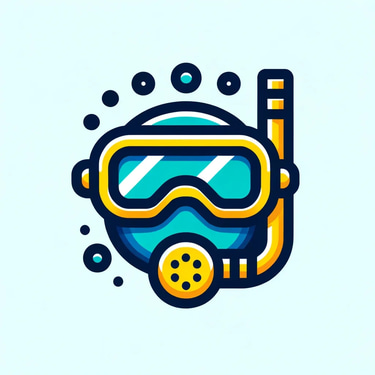Buddy System Breakdown: How to Be a Reliable Dive Partner
Learn the essential traits of a reliable scuba diving buddy and how the buddy system keeps divers safe, connected, and prepared.
SAFETY WHILE DIVING


Buddy System Breakdown: How to Be a Reliable Dive Partner
Scuba diving is not a solo sport. Whether you're diving in warm Caribbean waters or exploring a kelp forest off the Pacific coast, your safety is strongly corelated to your dive buddy. The buddy system isn't just a tradition; it's a cornerstone of safe, enjoyable diving. But being a reliable partner means more than just swimming next to someone—it's about responsibility, communication, and preparation.
Start with Pre-Dive Communication
Before entering the water, talk through your dive plan together. Review depth limits, bottom time, hand signals, and emergency procedures. Discuss air-sharing strategies and confirm who will lead the dive. The more aligned you are before getting in, the smoother and safer the dive will be.
Master the Pre-Dive Safety Check
Every good buddy team performs a pre-dive check. Use the BWRAF method (BCD, Weights, Releases, Air, Final check), endorsed by PADI, to make sure all gear is functioning and properly fitted. Skipping this step is one of the most common causes of avoidable underwater problems.
Stay Close—But Not Too Close
A good buddy team maintains awareness of each other throughout the dive. You should always be within visual and swimming distance—far enough to avoid tangling, but close enough to assist quickly if needed. Being able to see your partner’s body language can also alert you to issues like fatigue, anxiety, or equipment malfunctions.
Communicate Clearly and Calmly
Hand signals are your underwater language, so use them often. If your buddy gives you a signal—like "OK" or "Something's wrong"—acknowledge it and respond. Don't ignore even minor signals; small issues can become emergencies if not addressed early.
Respect Your Buddy’s Limits
Everyone has different comfort levels and experience. If your buddy doesn’t want to enter a wreck or go deeper than 60 feet, don’t pressure them. Respect is key to trust, and trust is the foundation of a solid buddy relationship.
Be Prepared to Help—And to Ask for Help
In emergencies, a buddy can mean the difference between a minor inconvenience and a life-threatening situation. Be mentally and physically prepared to assist your partner—and don’t be afraid to ask for help yourself. Good buddies look out for each other without judgment.
Practice Makes the Partnership
If you dive with someone frequently, your teamwork will naturally improve. But even with new partners, being proactive and communicative can establish trust quickly. Treat each dive as an opportunity to be better—not just for yourself, but for your buddy, too.
Happy and safe diving,
The ScubaBlast Team
Divers Alert Network. (2022). Buddy system basics: Why it matters. Retrieved from https://dan.org/health-medicine/health-resources/dive-safety/buddy-system/
PADI. (n.d.). The buddy system: Why diving with a buddy is important. Retrieved July 23, 2025, from https://www.padi.com/articles/the-buddy-system
SSI. (n.d.). Your first dive: Preparing with your buddy. Retrieved July 23, 2025, from https://www.divessi.com/en/blog/dive-buddy-preparation
